Traditional Fayoumi handicrafts
Fayoum is known for its rich artistic and cultural heritage, which is reflected in its traditional handicrafts. From pottery and weaving to embroidery and wood carving, these handicrafts have been passed down through generations and continue to be produced by skilled artisans today. Each craft is unique, with its own distinct style and techniques. The colorful and intricately designed pottery of Tunis Village, for example, is famous throughout Egypt for its beauty and durability. The handwoven textiles of Tamia Village are equally stunning, featuring bold geometric patterns and vivid colors.
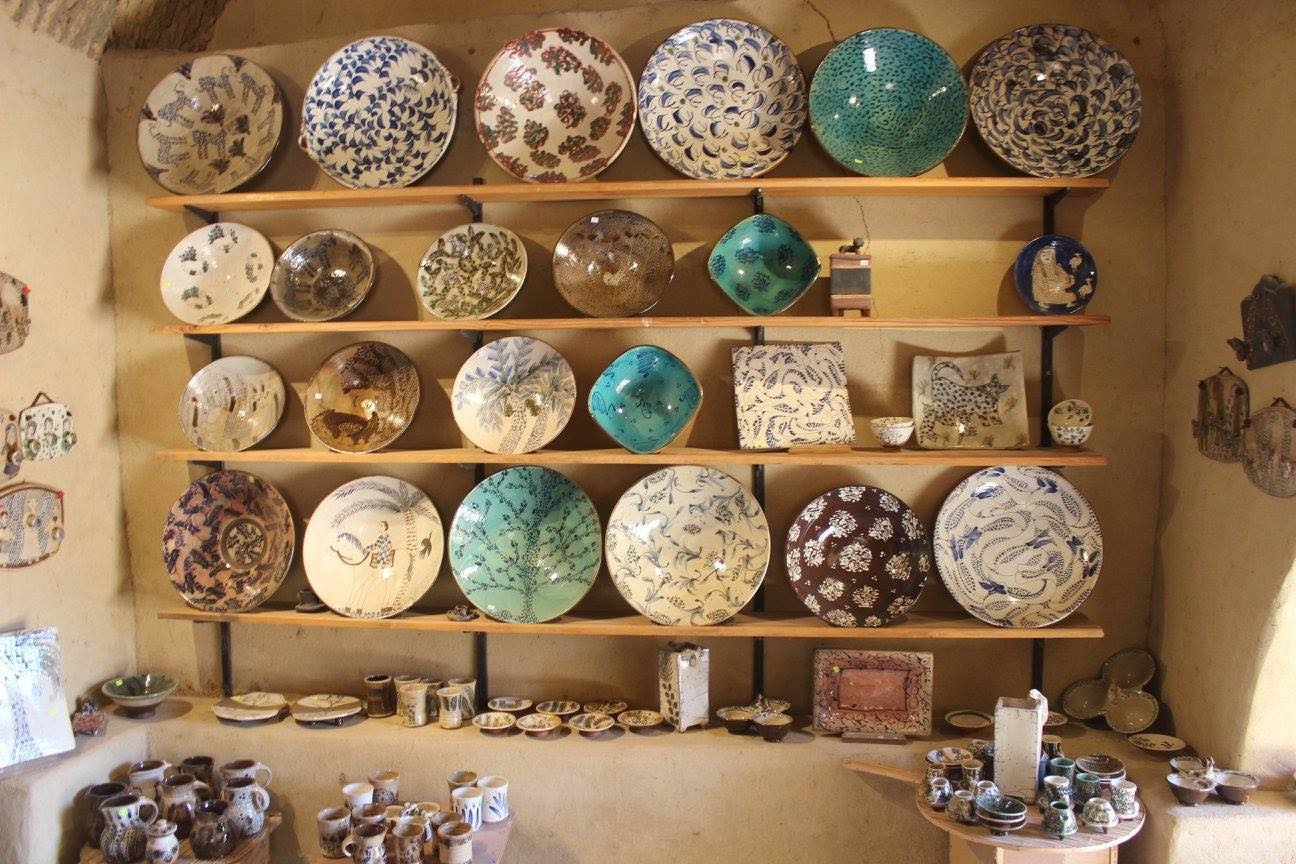
Shop for local handicrafts at Tunis village
Fayoum boasts important traditional handicraft products. Tunis village is famous for its pottery shops and classes, it has already become a tourists destination attracting people by its various workshops, pottery master-classes and numerous showrooms. Here you can find numerous shops with cups, ornamented pots and plates as well as small pieces of furniture.
Long ago, ancient Egyptians discovered the magic of the mud that the River Nile brings from afar and deposits on its fertile banks. They shaped it and fired it, and the clay, once treated in this way, acquired a distinctive tint, making it a shade darker than the pottery made elsewhere around the region. The pottery they made survived for centuries, bearing the tales of ancient times, transmitting the marks of divine symbols, the anecdotes of a distant past.
Tourists can enjoy observing, learning and participating in all the stages of manufacturing clay products made in Tunis village. This is easily done through organizing workshops to introduce eager tourists to the practical participation in manufacturing the handicrafts. No certain age is restricted, everyone is welcome to enjoy a unique authentic experience.
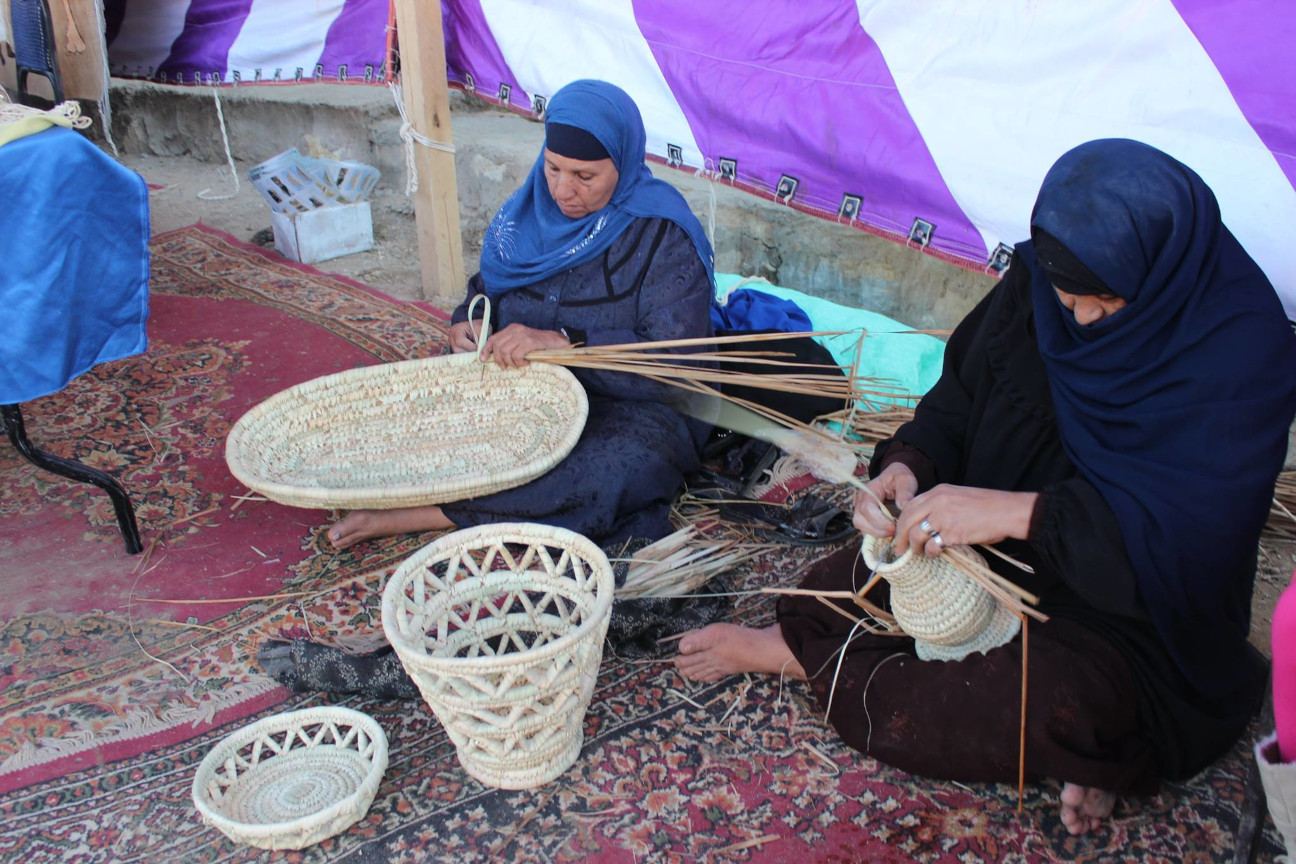
Baskets of El Alam and El Kaabi villages
El Alam and El Kaabi villages are small villages just 6 km far from Fayoum city, surrounded by cultivated land and green landscapes local families live here on agriculture and handicrafts. Women are used to sit in front of their houses weaving palm leaves and stalks of rice plants to produce mates, ropes and baskets of all sizes and complicated shapes, as well as bags, hats and small knick-knacks.
Ornamental baskets, known as sabat, are made in the village of al-Alam, the first village out of Fayoum on the Cairo road. In many houses of the village, groups of women sit on the floor, deftly fashioning the characteristic baskets. Bundles of rice straw are sewn in a continuous spiral with palm leaf fingers, pushed through with substantial steel needles. The final result, in all different shapes and sizes, often with fancy patterns in red or green, are both attractive and tough, and last for years.
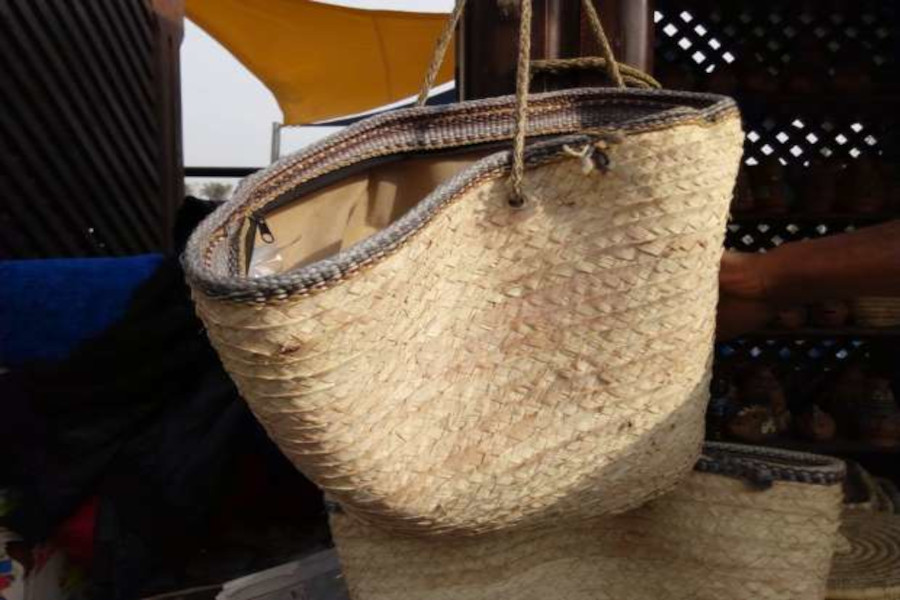
Ancient ma-taf baskets
In the village of al-Agamiyin, which lies to the northwest of Fayoum on the road to Ibshaway, you find another type of baskets is made, called ma-taf. This is a soft open basket made of woven palm leaf fingers, used by Egyptian laborers and farmers for moving earth, mud, rocks and so on. The ma-taf has a very old pedigree: in a showcase of Kom Oshim museum you will find a 2.000 year old terracotta model of one, found among the nearby ruins of the Ptolemaic town of Karanis. Also in the village multipurpose crates are made from the spines of palm leaves, while rope and rope nets are made from palm fibers.
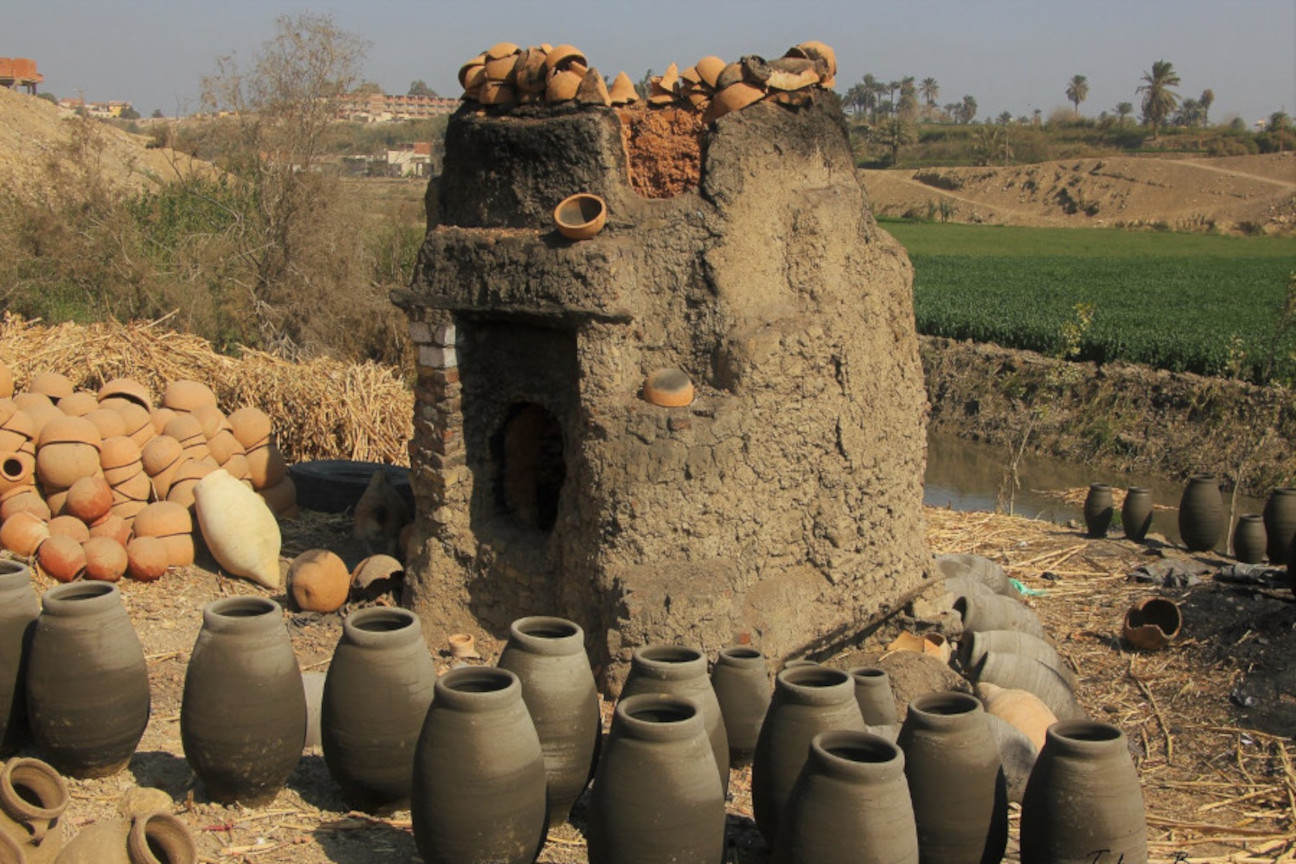
The village of al-Nazla and its utilitarian pottery goods
Plain, utilitarian pottery goods are made in several places, but particularly renowned is the village of al-Nazla, south of Ibshaway, picturesquely situated on the cliff of one of the Fayoum’s two main drainage streams. Along the cliff, between the village and the valley floor, a fascinating jumble of potters’ huts and kilns takes up every available level space. Around about, the fresh mud-and-straw pots, large and round, are left to dry in the sun before being baked.
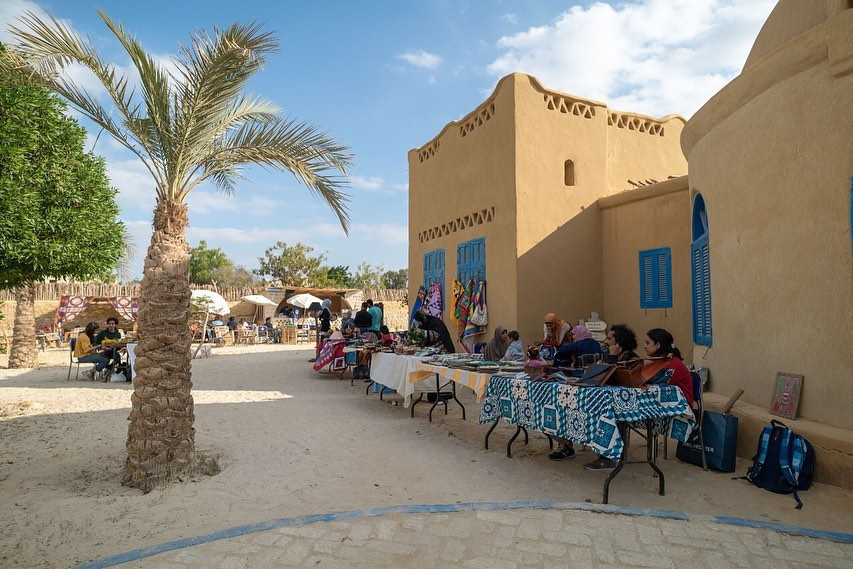
Fayoum Art and crafts center
Fidimin, a village just north of al-siliyin, is well known as the center of the main fruit growing area of the province, but it has another interest, which is its local crafts center serving as a training center for local children to become skilled in weaving, tapestry, embroidery or bead-work.
Boys of the center wave their carpets on looms from pure wool on cotton warp, and it comes in many different abstract designs, either in brightly dyed colors or in natural browns, blacks, grays and creams. The girls make intricate bead necklaces and produce fine tapestry and embroidery work. The center welcomes visitors Mondays to Thursdays.